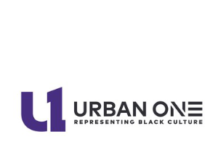
(By Randy Lane with producers Little Tommy Sablan and Steve Harmon)
Last week, renowned producer Little Tommy Sablan stressed the importance of callers and call screeners to successful radio shows. This week we’ll take a deep dive into the specific guidelines of effective phone screening.
- Tell callers to turn down the radio. You can explain the delay factor and remind callers to keep their radio turned down, even while on hold.
- Qualify the caller. A good caller has a story to tell, is relevant, funny, outrageous, or poignant. Always ask yourself, “Will this person add content to the show?”
- Warm people up. Get the caller energized, loosen them up, and in some cases, suggest what you want them to say. You may need to recommend a better way of telling their story or making their point to evoke more response from the hosts and the audience.
- Rehearse. If there’s time, rehearse the on-air conversation before the caller goes on the air. Help to devise an opening statement that communicates his/her point or tells a story succinctly. Some callers will have two or three points to make. Zero in on the one that will make the most impact.
- Rejecting a caller. You’ll want to reject some callers, even if they have a good story or point. They may be inarticulate or take forever to get to the point. Put the caller on hold for 10 seconds, then apologize that there are several calls in front of them and there won’t be time for their call. Thank them, and tell them you’ll pass their comments on to the hosts.
- Callers who go on-air. Tell the caller to “speak loudly and clearly, and get right to the point.” Coach them to skip the “how-are-yous” to save time.
- Put the call with the most potential for causing a response from listeners on first (great story, strongest opinion, extreme view, etc.). Those calls will fuel other listeners to call the show.
- If the topic is an issue, strive to air callers on both sides. Example: Pro-con on legal marijuana. Listeners will be fully engaged emotionally by hearing callers they agree and disagree with, and contrasting calls will provoke more callers.
- Go for sparks on issue-oriented discussions. Engaging radio thrives on conflict and listener interactivity. Favor callers who disagree with the host and each other. If calls are all one-sided, push the ones with the most passion to the top of the list.
- Add good callers to the database and send them a prize when possible.
- Handling social posts, texts, and emails. Radio is an audio medium. You still want callers to be the primary vehicle for listener interaction. You lose emotion and dynamics by only reading texts, social media, and email comments.
Reminders:
- Respond back and try to get people with great comments on the air.
- Refer to the person’s name and how they responded (FB, text, etc.). When you read a response without identifying the source, it can sound like the comment is coming from the show host.
- Test topics and material on Facebook the day before it airs. You’ll find out if the topic has legs, and you’ll have responses ready to go when it’s a good one.
12. Speakerphones. Convince them to get off the speaker and pick up the phone. The quality of most speakerphones can be hard to understand on the air.






From my old days of producing (which included call-screening), I would also recommend “nursing” the callers. Just check in with them every couple of minutes letting them know they haven’t been forgotten.